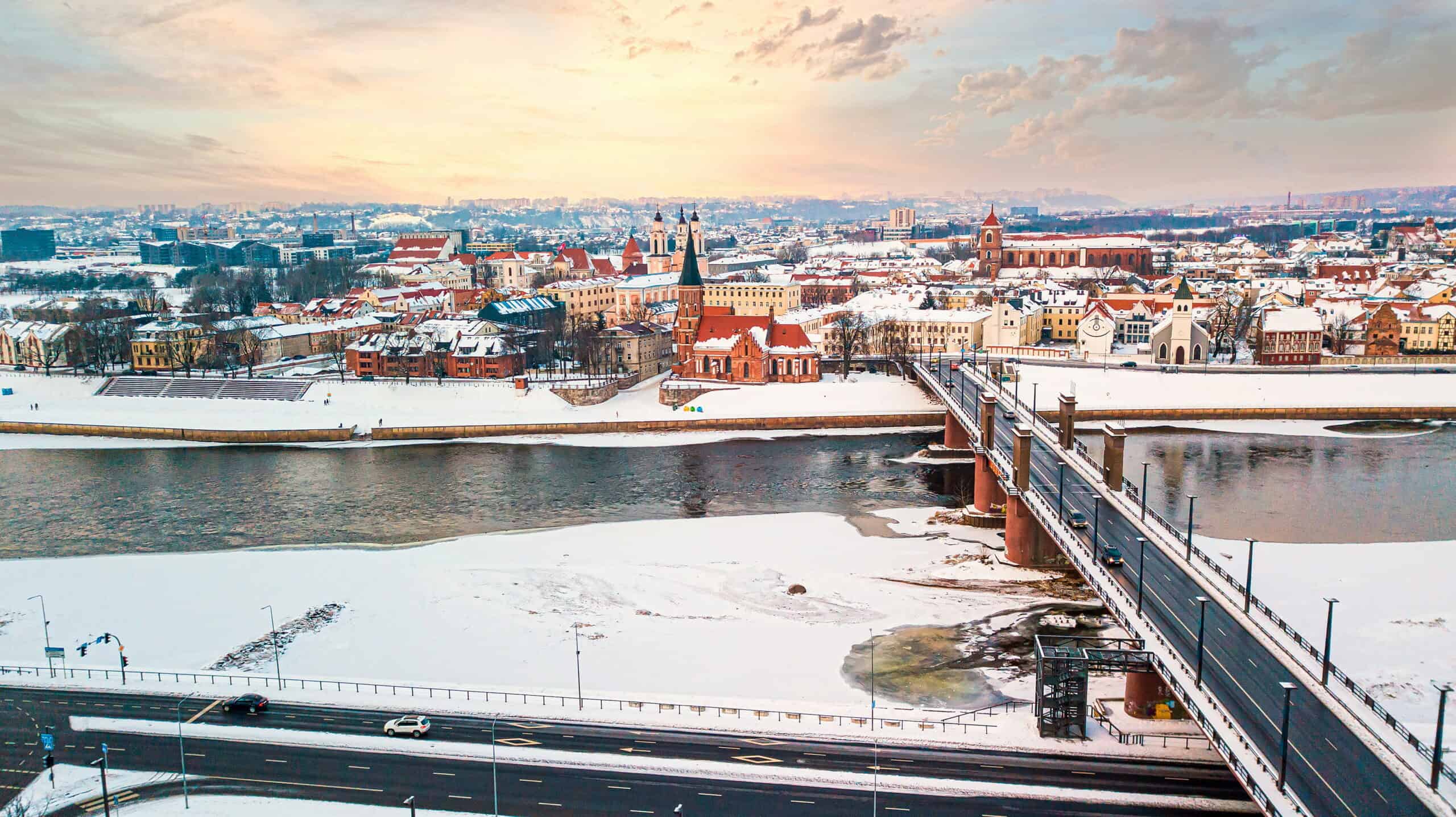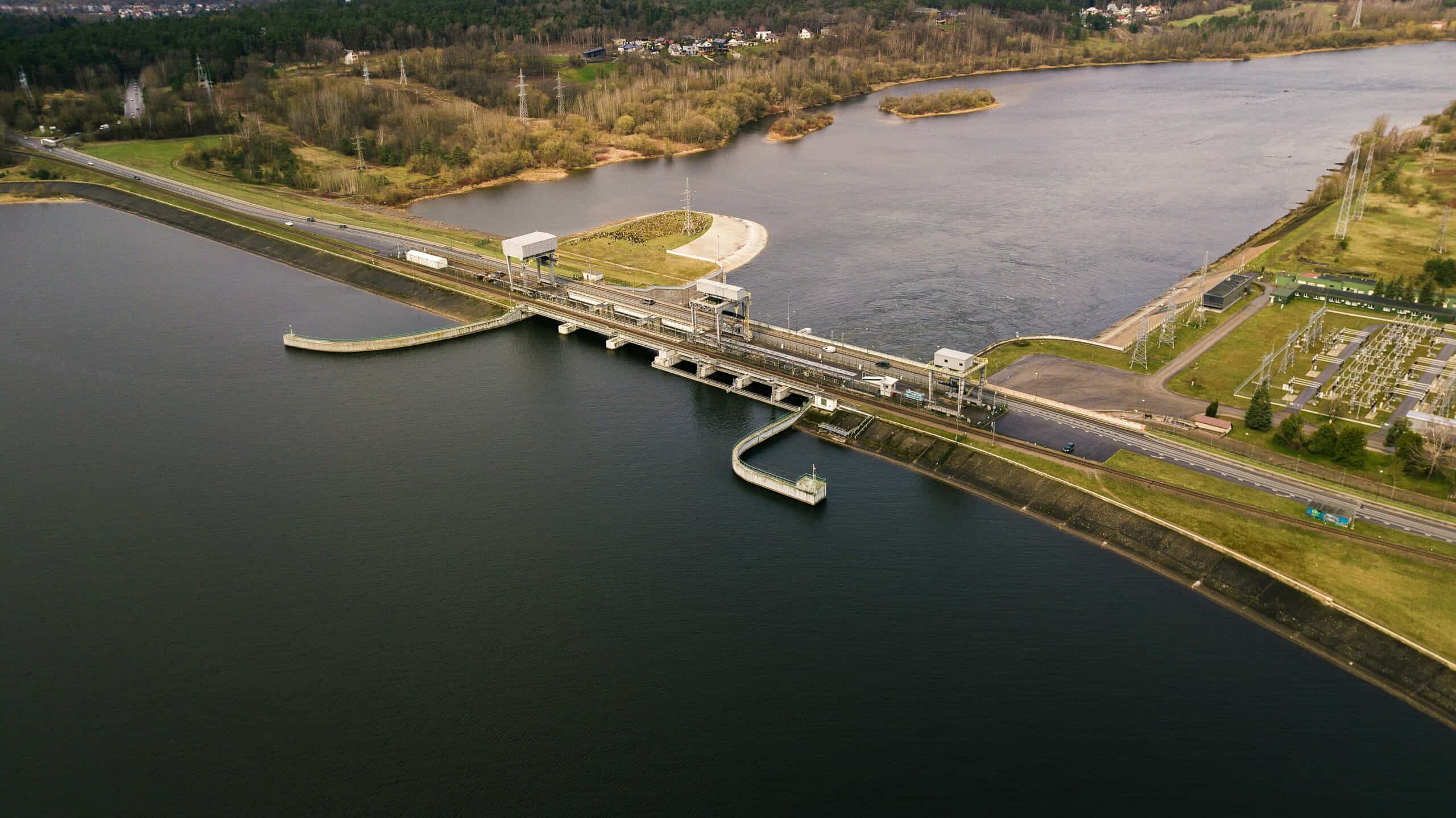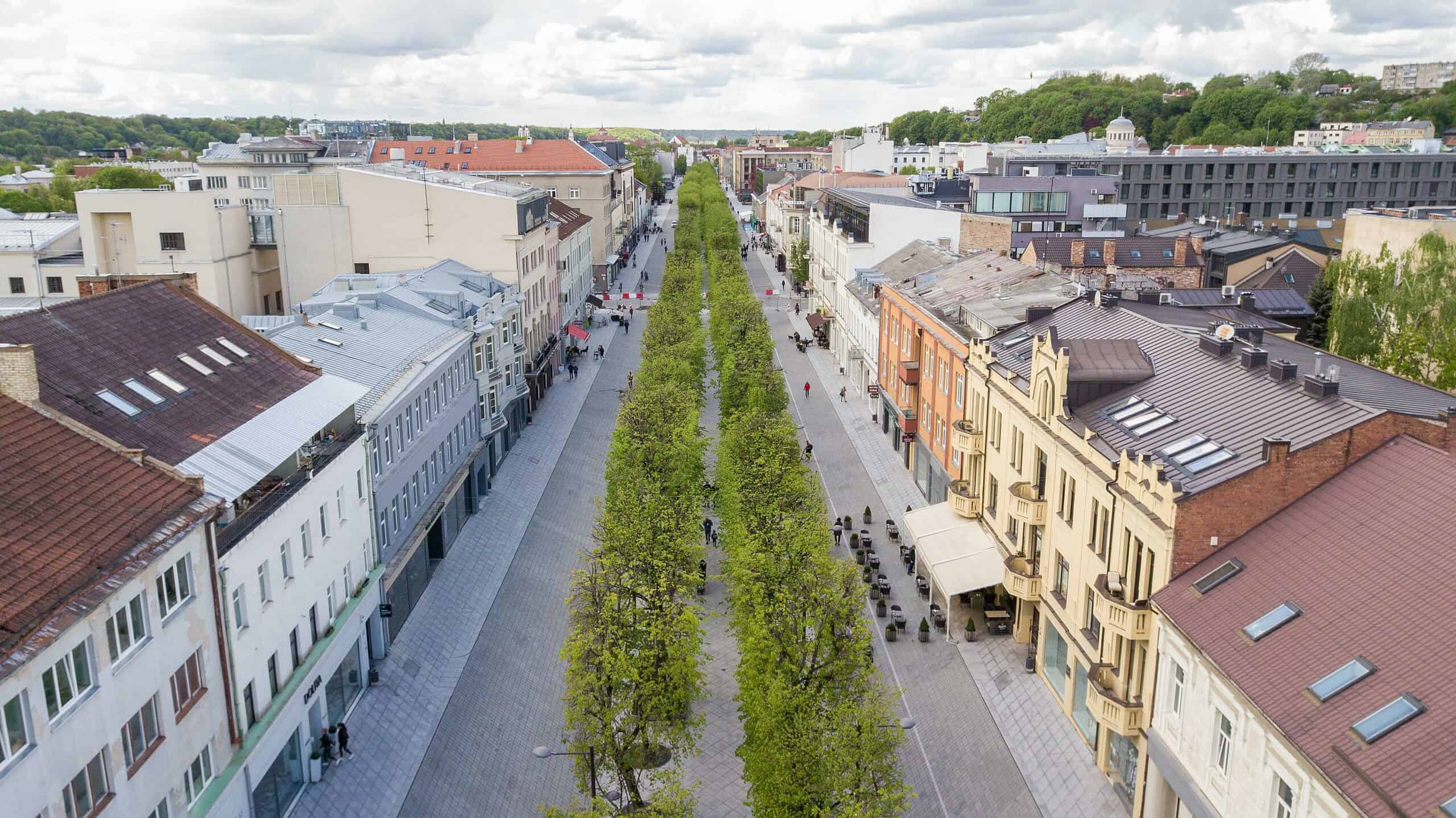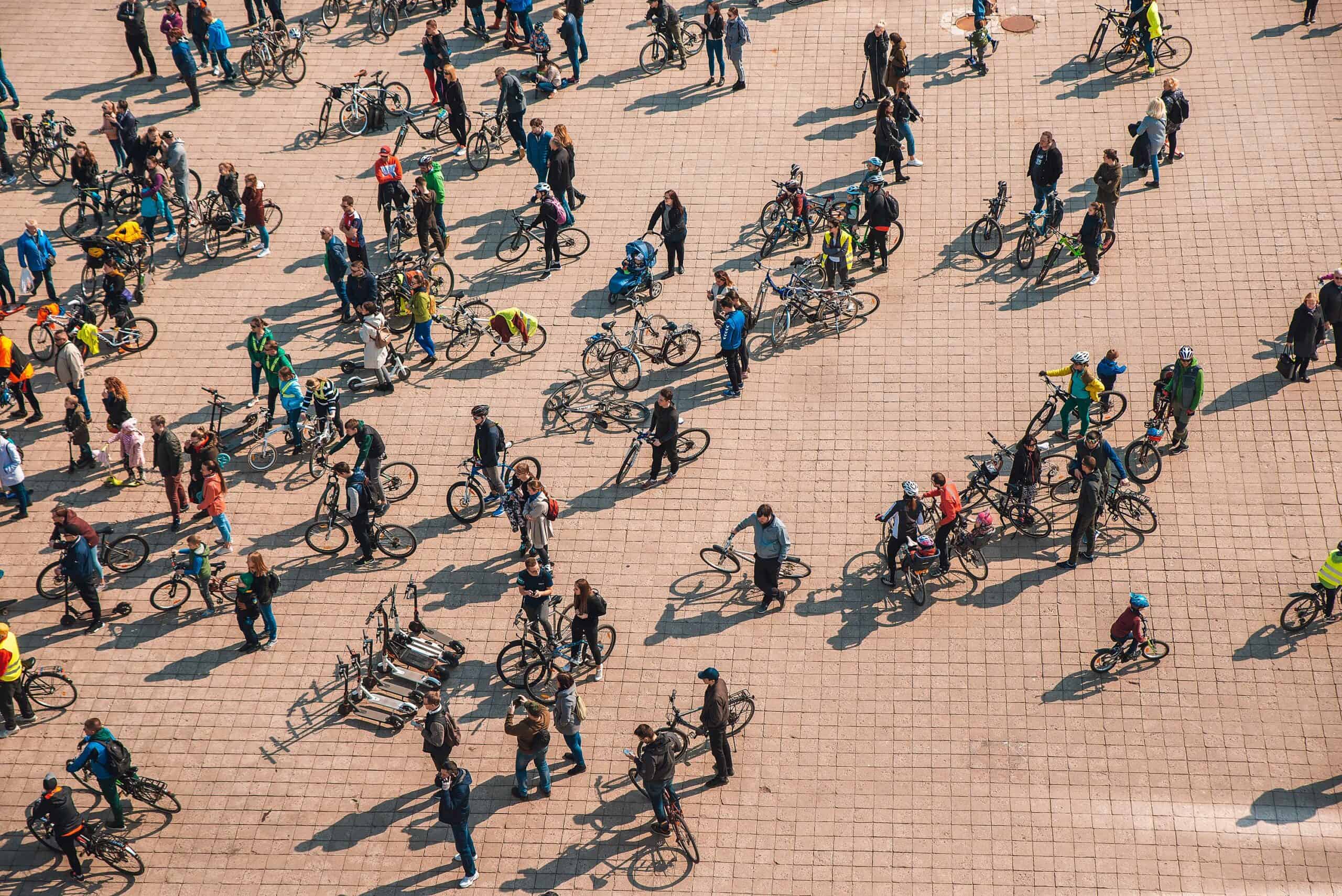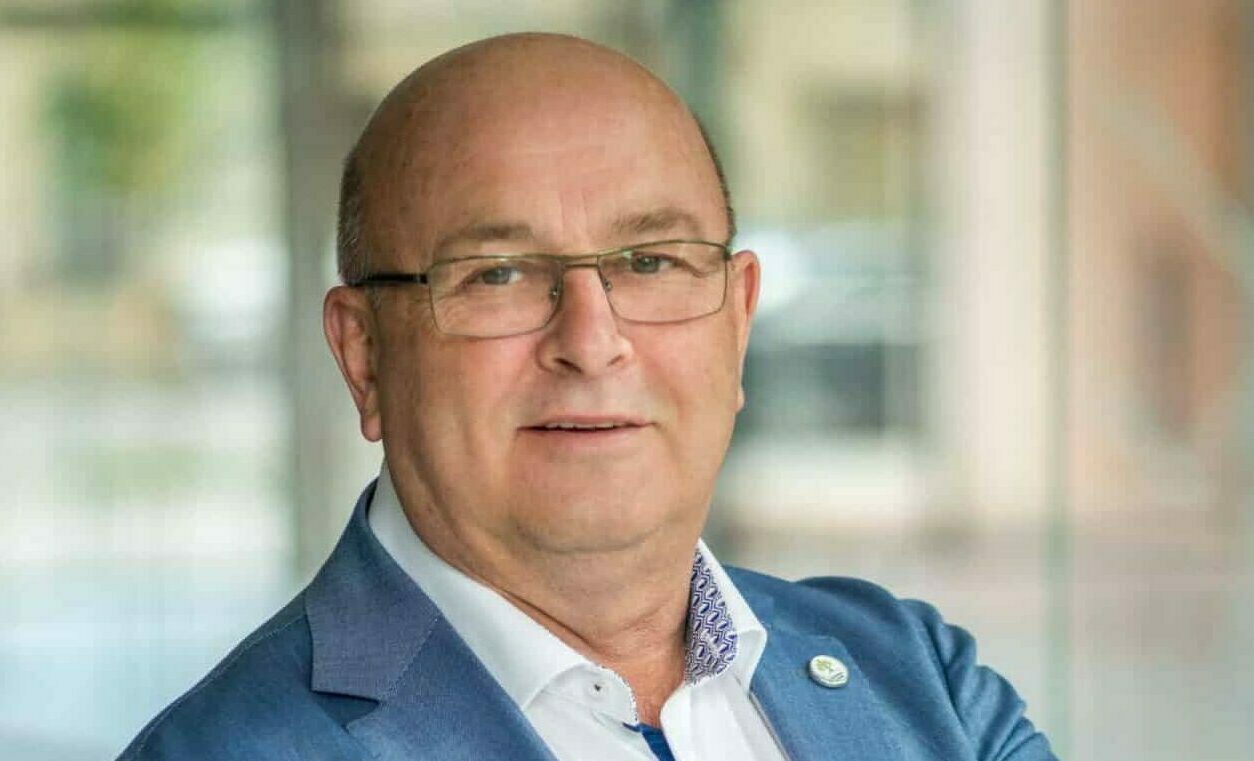
10 May 2022
The Mayor of Kaunas City shares his views on what Interreg can do for citizens
Written by Luca Arfini
Our Programme is working with cities and regions across the Baltic Sea to bring forward meaningful initiatives pushing for a greener and more innovative Baltic Sea region while meeting the needs of its residents. Visvaldas Matijošaitis, Mayor of Kaunas City, answers a few questions on how Interreg Baltic Sea Region made a difference for Kaunas and its citizens.
#DidYouKnow
Kaunas took part in two Interreg Baltic Sea Region projects: NSB CoRe & RESPONSE. These projects helped Kaunas to cooperate with other municipalities, cities and regions across the Baltic Sea region and together advance a demand-responsive, better connected, and accessible transport system locally.
What added values have transnational Interreg projects brought to Kaunas City and its citizens?
Interreg projects provide an opportunity to work with experienced partners from different countries in the Baltic region and neighbouring countries, thus solving problems at the regional level. In addition, by sharing good practices with municipalities in other countries, we are strengthening our network and forging new partnerships.
What did Kaunas City manage to achieve thanks to Interreg Baltic Sea Region that you wouldn’t be able to do alone?
Participation in this Programme allows Kaunas to seek a more general consensus on crucial issues for our city and our residents at a higher level. It is thus clear that without Interreg, it would not have been possible to adopt the best practices of other countries across the Baltic Sea region and to harmonise all processes expeditiously.
The largest railway infrastructure project in the history of the Baltic States, Rail Baltica, is currently being implemented and will undoubtedly serve the entire Baltic region in the future.
#DidYouKnow
Within the Interreg project NSB Core, Kaunas teamed up with other local, regional and national authorities from Finland, Estonia, Latvia, Lithuania, Poland and Germany. Together, they collaborated to develop a joint transnational spatial vision for regional development, logistics, and mobility of the North Sea-Baltic corridor. The corridor is a transport and development corridor, stretching from Germany to Sweden.
Kaunas City has been involved in projects dealing with creating a demand-responsive, better connected and accessible transport system (NSB CoRe & RESPONSE Interreg projects): can you give a few practical examples of what your citizens gained thanks to those projects?
Last year, we launched the Response Pilot Program, a special bus that took children living in remote areas of the city to school. Most of them were taken to school by their parents in private cars. With our initiative, we worked to reduce traffic in the busiest zones of the city and to grow sustainable mobility habits among younger generations. We believe that this project has great potential.
#DidYouKnow
#MadeWithInterreg RESPONSE project, set up pilots in areas across the Baltic Sea region that are sparsely populated testing out transport alternatives for vulnerable social groups such as the elderly or schoolchildren. In Kaunas City, these solutions were targeting children and facilitated their travelling between home and school.
The pilot was based on an analysis showing that the vast majority of the trips in Kanuas that include children’s transportation to educational institutions are made using private cars. This negatively impacts the environment. The pilot ran from May 2021 until December 2021, targeting about 2035 students from three schools.
Is there any Interreg project you are personally more familiar with or attached to? Why/How?
In the autumn of last year, Kaunas had the opportunity to host the 12th European Union Strategy for the Baltic Sea Region (EUSBSR) Annual Forum, which focused on the green direction of cities, the sustainability of the region and the partnerships of communities, cities, and countries that enable that sustainability. For the first time, such a high-profile event lasted for several days. We are happy to be part of this process, because only together can we promote positive change in the region and sustainable urban development.
#DidYouKnow
The Annual Forum of the EU Strategy for the Baltic Sea Region brings together all the actors, organisations, and project partners implementing the Strategy as well as other participants who want to contribute to solving common challenges of the Baltic Sea region. The Forum takes place every year in a different country in the Baltic Sea Region. In 2021, it was held in Kaunas, Lithuania.
Interreg Baltic Sea Region Programme 2021-2027 offers new funding for innovative, water-smart and climate-neutral solutions developed transnationally for the benefit of the whole region. Which new topics do you find particularly interesting for Kaunas City? Why?
We work in all areas. However, we are currently focusing on sustainable mobility and energy. In recent years, we have significantly renewed public transport, and the network of cycle paths in the city has already crossed the 110 km limit.
Last year, at the state level, we signed a memorandum on the installation of a lock and fish ladder at the Kaunas hydroelectric power plant, the partition of which separates the Nemunas. If the project is successful, in the future, we would have another alternative connection in the Baltic region, which would also serve the migration of different fish species.
What would you say if you were to encourage other municipalities to join Interreg projects as partners?
More can be achieved by working with different partners across the Baltic Sea region. New insights and experiences open up new possibilities, and the best solutions are discovered together. This creates long-term collaborative relationships in relevant areas.
#DidYouKnow
In the next years, Interreg Baltic Sea Region will keep supporting initiatives with a positive impact on the residents of the region. If you have a smart or green idea and want to receive funding for it check our gateway for applicants, where you will find all the information on our next call.
More recent news
Grand results of the first round of small projects!
Despite the winter scenery, the results of 17 finalised Interreg Baltic Sea Region projects are in full bloom! And behind them lie two years of intensive work across borders, mutual learning and inspiration, and connections that last.
Climate-neutral future at hand for Baltic Sea region cities
Turning a city into a climate-neutral one requires knowledgeable people, thorough planning and solid financial resources. But how can cities manage this transition smoothly? The Interreg project Climate-4-Case guides cities around the Baltic Sea on how to do that right.
Designing Interreg Baltic Sea Region that belongs to everyone
10 December 2025 Designing Interreg Baltic Sea Region that belongs to everyone Written by Eeva Rantama What if the next Interreg Baltic Sea Region...
Monitoring the Programme’s progress: transnational cooperation in the making
Representatives from nine Programme area countries gathered in Berlin on 19-20 November 2025 to review the progress of the Programme’s implementation and start preparing for the post-2027 period.



